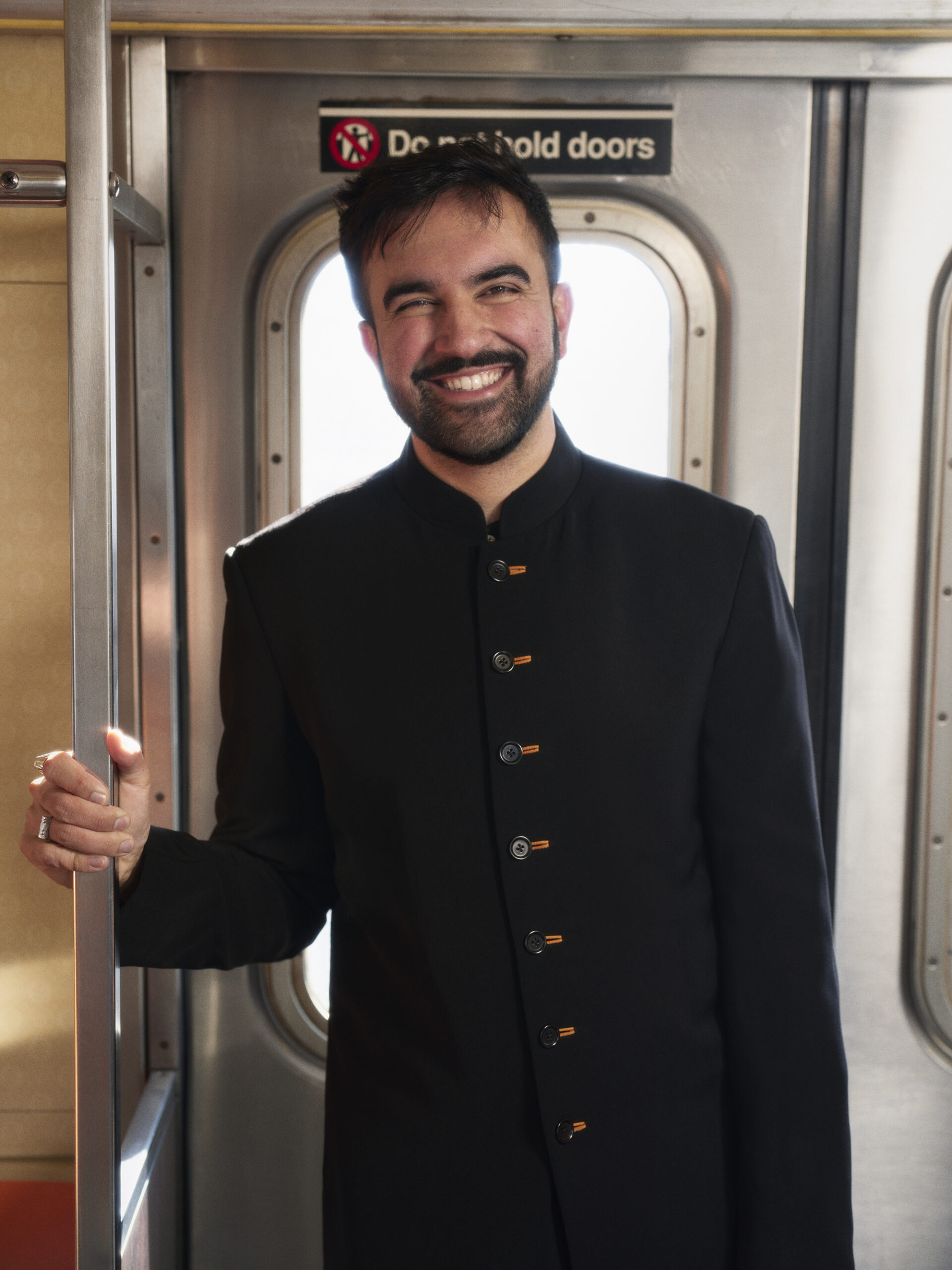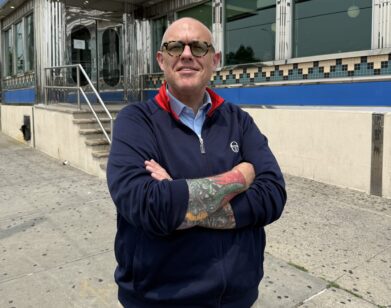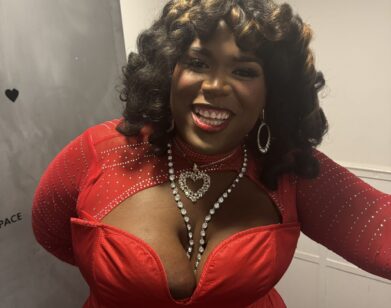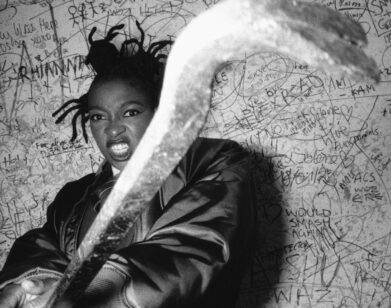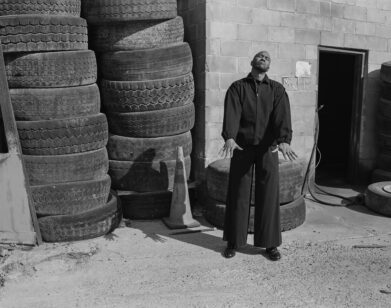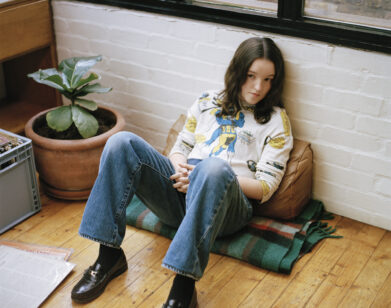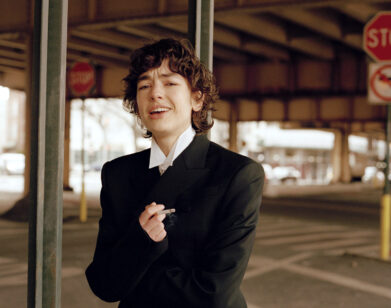LOCAL NEWS
18 New Yorkers Put Mayoral Candidate Zohran Mamdani to the Test
It’s not every day a democratic socialist from Queens has the gusto to go up against the corporate establishment, so when Zohran Mamdani launched his mayoral bid with the promise of a rent freeze, free buses, and universal childcare, New Yorkers took note. In March, we asked celebrities, politicians, and everyday New Yorkers to pose questions to the would-be mayor. The result? An inside look at Zohran’s campaign and the mindset of a young assembly member determined to shake up the status quo.
———
CRACKHEAD BARNEY, PERFORMANCE ARTIST:
Who the fuck are you?!
ZOHRAN MAMDANI: My name is Zohran Kwame Mamdani. I was born in Kampala, Uganda, and moved to New York City when I was 7 years old. I was raised in Morningside Heights, went to high school at Bronx Science, went to college at Bowdoin College, and have worked a lot of different jobs in between. Most recently, before being an assembly member, I was a foreclosure prevention housing counselor at Chhaya CDC, where I worked with low- to moderate-income homeowners across Queens who were facing foreclosure. I’d negotiate on their behalf with their mortgage lender. In 2019, I ran for office to be the assembly member for my neighborhood in Astoria and Long Island City, and I’m now in my third term. I hope that’s what Crackhead Barney was looking for.
———
HEEMS, RAPPER:
From one Queens-representing internet food rapper to another, how did your time as an emcee influence you as an organizer, representative, and hopefully my new mayor?
MAMDANI: [Laughs] Being an aspiring— and, I would say, at times failed—emcee teaches you how to deal with rejection. Once you’ve gone dorm room to dorm room on a college campus trying to sell your mixtape, or been the opening act to the opening act to the opening act of a concert, it’s much easier to stand on a subway platform at 7 in the morning and ask people to sign your petition to put your name on the ballot. Both of these things are an act of storytelling: telling the stories of the New Yorkers you’re fighting for and never taking yourself too seriously, because you know that for every one person who will reject you, there’s another just a little further down the platform who may actually give you a chance.
———
BRIAN LEHRER, RADIO HOST:
I think you’re the only person I’ve interviewed whose famous mother has also been a guest on my show—the iconic filmmaker Mira Nair. (One whose famous father has also been on is Andrew Cuomo.) Are there any of your mother’s films that you would most recommend to the readers or that most affected your own worldview growing up?
MAMDANI: Mississippi Masala, because if my mother had not made that film, I would not be alive today. She met my father in the process of researching that film, and fell in love. That to me is the greatest film that’s ever been made.
LEHRER: Several other progressives in the mayoral race who previously called for reducing the police budget have reversed course and are now calling for adding more officers. In a recent interview with my colleague Elizabeth Kim, she asked whether you would try to cut police funding as mayor. Would you?
MAMDANI: I’ve said that we need to bring the culture of impunity that has characterized the NYPD under Mayor Adams, as well as under previous administrations, to an end. And I’ve spoken about my commitment to disband the strategic response group, to eliminate the NYPD’s more than $1 billion in annual overtime, and to downsize the NYPD’s communications department, which is currently more than 80 people strong and still unable to convey the basic facts of a case to New Yorkers.
———
ERIC RIPERT, CHEF:
Do you eat fish? If so, where do you like to get it?
MAMDANI: I do eat fish, but unlike Eric Adams, I’m not a vegan. I eat fish at Bahari Estiatorio on Broadway in Astoria. I eat fish at Abuqir on Steinway, and I eat fish at Elias Corner on 24th Avenue, and I also eat fish at home. Big fan of salmon and pasta, a classic Indian dish.
RIPERT: Midtown has become more congested due to the added bike and parking lanes on both sides of the street. To compensate for that, the city has implemented the new fee to travel by car below 60th Street. Do you think this is discrimination towards the businesses in this zone, as customers now have to pay a fee to travel to them by car?
MAMDANI: I don’t think it’s discrimination. I’ve been a supporter of congestion pricing and I’m glad the governor implemented the policy. What we’ve seen is that foot traffic has actually been up in that zone versus the year prior. So, I think this tolling program is one that can actually bring in more customers to Midtown. Bus speeds have gone up, and for those customers who continue to drive, that trip is now shorter. But ultimately, what we need to do is to make public transit reliable and universally accessible so that any customer who wants to go to any restaurant knows that the quickest and best and cheapest way for them to get around, and to be able to afford that second fish, is to go by public transit.
———
CHLOË SEVIGNY, ACTOR:
With the pervasive empty storefronts, no one is taking care of the sidewalks and the inevitable garbage pileups. The bins are too small to handle the amount of to-go waste the tourists and city dwellers produce. On windy days, the trash just scatters up and down the avenues. How do you plan to address these specifics with concern to garbage? Don’t get me started on people not picking up after their dogs…
MAMDANI: One of the few good things you can say about the Adams administration is that they didn’t get in the way of progress towards containerizing refuse—you know, that revolutionary idea of putting trash bags in bins instead of on the street? All small and midsize buildings should use shared on-street containers for waste, clearing the sidewalks of wheelie bins. I also think we need to start holding corporations accountable for excessive and non-recyclable packaging— state legislation I’ve long supported in Albany.
———
EDUARDO CENAT, USPS EMPLOYEE:
What are you going to do to serve minorities?
MAMDANI: We’ve seen that the cost-of-living crisis disproportionately impacts Black and Brown New Yorkers, so when I’m talking about freezing the rent for more than 2 million people, that is a policy that would disproportionately benefit Black and Brown New Yorkers. When I’m talking about making the slowest buses in the nation fast and free, that is a policy that does the same, given the racial breakdowns of who actually rides the bus every day. And finally, when we’re talking about universal childcare, that’s a policy that would not only allow families to have their children taken care of without spending close to $25,000 a year, but also provide pay parity for childcare workers who are disproportionately Black and Brown women earning, at times, subminimum wage.
———
CHI OSSÉ, N.Y.C. COUNCIL MEMBER:
If you had to pick, are you more of a Carrie Bradshaw or a Hannah Horvath?
MAMDANI: I’m a Miranda.
OSSÉ: I love the way you use social media to connect with potential voters and New Yorkers as a whole. Is there anyone who inspired you to approach social media in this way?
MAMDANI: [Laughs] I absolutely have to credit my friend Chi Ossé for being an inspiration for our digital media strategy. I also have to credit my congresswoman, Alexandria Ocasio-Cortez, who pioneered much of the use of Instagram as a means to speak directly to constituents. Ultimately, this is a campaign about fighting for working-class people and having a politics that doesn’t require any translation. I think the medium is as important as the message, and there’s no better medium to do so than social media. It doesn’t just speak to the 26 percent of Democrats who voted in the 2021 mayoral primary. It also speaks to the 74 percent who stayed home, the millions who didn’t vote or even know that there was a mayoral primary at that time.
———
BRACE BELDEN, PODCAST HOST:
If you were going to go down for petty corruption a la Eric Adams, what would your Turkish Airlines be?
MAMDANI: It would be a hair transplant. Every Brown man knows at some point in our lives, we will have to make that flight [to Turkey]. I’ve made a public commitment that I would be paying for my own, but that is the thing that I’m weakest on. [Laughs]
———
JENNIFER THURMAN, UNEMPLOYED:
How come the shelter system is so screwed up?
MAMDANI: Part of it has to do with the fact that we’ve had a mayoral administration that seems to care very little about actually moving New Yorkers into housing that they can call their own. The city has given out vouchers to New Yorkers that could pay around $3,000 a month in rent, but many of those New Yorkers cannot find a single landlord willing to accept that voucher. Eric Adams also cut the funding for income discrimination investigations, such that now there aren’t any consequences for those landlords. What that has left us with is more than 100,000 New Yorkers residing in some form of a shelter each night. What my administration would do is construct 200,000 permanently affordable, union-built, rent-stabilized homes over the next 10 years.
———
CYNTHIA NIXON, ACTOR & ACTIVIST:
When I ran for governor against Andrew Cuomo, there was a thing that was dubbed the “Cynthia effect,” whereby I would propose some wonderful progressive common-sense thing, like legalizing marijuana, banning plastic bags, or increasing NYCHA funding, and the next week Cuomo would come out with the same thing rebranded. I hear part of Cuomo’s platform for mayor is free buses—whaddayaknow? Has the “Zohran effect” started already?
MAMDANI: I think we’ve definitely seen the beginnings of it, not only in his inclusion of free buses as part of his affordability plan, but also in the skeleton plan that he just released with regards to housing. However, what it misses is the actual commitment to following through on policies that will have a tangible impact on working-class people’s lives. And I think the reason we see the “Zohran effect” is that it’s much easier to imitate the platform of your most compelling challenger than having to run on your own record, because running on Andrew Cuomo’s record would be the opposite of everything that New Yorkers want today. It’s hard to run on a record of cutting Medicaid and stealing money from the MTA, or hounding the more than a dozen women who courageously spoke up about his sexual harassment, or pretending to be a champion for the working class while showering rich donors with tax breaks. This is not a record that any mayoral candidate would want to run on. And so I understand why Andrew Cuomo is looking for someone else’s.
———
EILEEN MYLES, POET:
Would you consider New York City declaring itself in support of freedom of speech on campuses, where the crackdown on dissent against the war against Gaza seems chilling and against First Amendment rights and the atmosphere of tolerance that has been a hallmark of our city’s character since day one?
MAMDANI: I’m proud to have been the first and, to my knowledge, only candidate to say that I would not have sent the NYPD onto CUNY and Columbia campuses. As a Democrat, I don’t understand how we can be consistent in our belief that guns make middle schools more unsafe, high schools more unsafe, and yet we want to send guns onto college campuses. And what we saw is that when Eric Adams did so, one of those police officers discharged their weapon, and that was the least safe that students have ever been throughout the course of any of these encampments. We have had a New York City council member show up to pro-Palestine protests with a gun. We’ve had another council member call for the slaying of these protesters. Now, the Trump administration has dramatically escalated its assault on the First Amendment by arresting and detaining Mahmoud Khalil, a legal permanent resident and father-to-be, simply for participating in protests. This is a sign of advancing authoritarianism that we all must vocally oppose. If you can’t speak up for Mahmoud, how can we count on you to speak up for the next New Yorker that Trump comes for?
———
MEL OTTENBERG, EDITOR:
Post-COVID, my neighborhood is filled with people doing drugs everywhere, and the quality of life has deteriorated. If you were mayor and that became your problem, what would you do to fix it?
MAMDANI: Concern about quality of life is something that I hear about from a lot of New Yorkers. It’s been defined in the ways that Mel said, as well as in the way of the streets being dirtier. There are fewer trash cans, and the parks are not maintained in the way that they once were. I think one of the foundations of all of these issues is that, under Eric Adams, we have seen the city government retreating further and further from New Yorkers’ lives. We’ve seen that play out in attempted cuts to libraries, to sanitation, to schools—any public good, you name it, he’s tried it. One of my commitments as the next mayor of this city is to fund public goods to ensure that we’re actually putting the money behind these agencies so that they can do their job. When those jobs are done at the fullest of their capacity, each and every New Yorker feels it in the order of their lives.
———
KAREEM RAHMA, COMEDIAN:
Did you ever get teased growing up? If so, what kind of insults?
MAMDANI: I’m in a bind because if I share them now, I know that I’m going to hear them for the next six, seven months. I’m someone who in many ways was raised by my cousins— that’s the kind of teasing that I most needed as a child. But the classic thing I got when I came to this country was Zohran the Moron. [Laughs] I’ve survived through that period.
———
TAYLORE SCARABELLI, EDITOR:
How often do you use food delivery apps and what are you going to do to protect workers who are delivering that food to New Yorkers?
MAMDANI: Very rarely. I use them at times in Albany and there is one place that I order from, Shah’s Halal Food, which is one of the few places that is open past 10 p.m. But I think there are a number of things to do to protect those workers. One is to actually hold their employers accountable, because they have a history of stealing from their workers. I also think there has to be a real focus taken to the conditions of their workplace, which is the streetscape of New York City. There are a number of proposals right now that I’m quite concerned about. One would effectively be giving the NYPD the right to conduct stopand- frisk exclusively for these workers. And it’s not lost on me that one of the individuals who is currently being held at Guantanamo was picked up because he was biking the wrong way in Texas. At this moment, when we have a president seeking to create the largest deportation force in American history, we have to ensure that every action we’re taking protects New Yorkers from being in the crosshairs of that administration.
———
BEN BARNA, EDITOR:
What’s your favorite building in New York?
MAMDANI: Well, I recently got married in a civil ceremony at the clerk’s office, and I absolutely loved that building. The outside is just so beautiful and reminiscent of a different New York City, and the inside is in many ways public goods personified. All of these New Yorkers getting married at the same time at different ages and at different times in their lives, it’s very beautiful.
———
JEREMY O. HARRIS, PLAYWRIGHT:
How would you talk to a constituent who fears that the amount of pushback your policies might receive will leave their wallets in a lurch for a long time?
MAMDANI: Let’s start with the three opening policies that I’ve put forward: freezing the rent, making buses fast and free, and delivering universal childcare. The first doesn’t require any money from taxpayers. It is a decision that’s made by the Rent Guidelines Board, which is composed of nine members appointed by the mayor, eight of whom’s terms are currently up and could be replaced tomorrow. That board limits what landlords can charge tenants, and doesn’t require any additional revenue from the city in order to be able to do so. Buses and universal childcare, together, we’re looking at a cost estimate of about $6.75 billion, which is a significant amount of money, but also has to be put within the context of a city budget that is about $114 to $115 billion, and a state budget that’s about $250 billion. There are far more optimal uses of city funding and state funding than that which is currently taking place, but also, the new revenue required to make both of these things a reality will be found not in the pockets of working-class or middle-class New Yorkers, but by increasing taxes on the most profitable corporations in the state. And we don’t have to look very far for an example of how we could do so, because while in New York our corporate tax rate is 7.25 percent, the corporate tax rate of New Jersey, the radical socialist utopia across the river, is 11.5 percent. Just matching that corporate tax rate would enable the funding of much of this program, and that’s what New Yorkers deserve. They deserve to have the services that would transform working-class people’s lives and positively impact each and every New Yorker in doing so.
———
YASAR OZEL, DELI WORKER:
What will you do to make the subways more safe?
MAMDANI: When you ask New Yorkers if they feel safe, oftentimes the subway is the first example of where they feel that absence. We’re going to be releasing a platform to create the Department of Community Safety, which will pioneer peerled mental health intervention and outreach teams, as well as homelessness outreach teams, that will be built off of the models that we have seen be successful in cities across the country, such as Denver, Eugene, and Olympia. What these teams will be able to do is actually intervene in the moments of crisis that New Yorkers are experiencing, as well as direct New Yorkers to the services that we are currently tasking police officers to provide. Through these teams, as well as the repurposing of currently vacant commercial units across the subway system to provide actual services, we will transform New Yorkers’ experiences when they are taking the train, as well as the experiences of New Yorkers who are currently living within our subway system.
———
JULIO TORRES, ACTOR & DIRECTOR:
Would you rather get a lower-back tattoo that says “I’m Elon’s little cyber truck” and have a photo of it leaked and not be able to say it was for a dare, or drink a whole pitcher of water from the Gowanus Canal the night before a debate?
MAMDANI: It’s got to be the second one because it’s Ramadan, and getting a tattoo right now is probably one of the most haram things I could be doing.
TORRES: Have you ever been to Basement? I could maybe get you a membership but no promises.
MAMDANI: I’ve tried. I didn’t get in. This is my Turkish Airlines moment and I want to be clear I’m not accepting.
———
Post-production: Zach Malfa-Kowalski.

